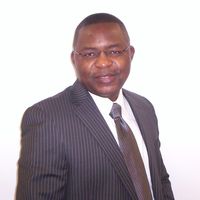By Joseph M. Ndifor (Opinion Writer)
The New York Times columnist David Brooks recently wondered…“if the Republican Party has become the receding roar of white America as it pines for a way of life that will never return.” Some English-speaking Cameroonians couldn’t agree more with the columnist, and may also question if these yearnings for a return to the good-old days of West Cameroon isn’t an anomaly, when glaring financial improprieties—the very markers that Anglophones once shunned within that system—continue to haunt those of them that have served in this administration over the years.
I’m often at loggerheads with those who rush to cast aspersions on men like the late S.T. Muna, John Ngu Foncha, and Bernard Fonlon. Of course, there were gaffes that these men committed in the course of their political careers, and Anglophones have reasons to question if they were coerced, not persuaded, into a relationship with East Cameroon that went sour in later years. But of all that has been leveled against them in their quest for higher ideals—whether for reunification with East Cameroon or to join Nigeria—they, unlike Anglophones holding similar positions today, had this noble trait about themselves: they were beyond reproach when it came to matters that they felt would bring opprobrium upon their high office. How does one reconcile these late politicians with this headline news:“Inoni [an Anglophone,and former Prime Minister] Charged with Embezzling FCFA 1.7 Billion”
That Foncha and his colleagues got outfoxed—the “betrayal of too trusting a people,” in professor Carlson Anyangwe’s words— by Ahidjo and his successor in the course of finding common grounds between two entities, some of whose natives (like the Bamilikes and Bassas) were dispersed over other regions like the Northwest and Southwest provinces, shouldn’t be what calls for their indictment.
Rather, we should ask ourselves if these politicians, given the task that stood before them at the time, settled for what they thought was above their own personal aggrandizement: interest of an emerging nation. This, I believe, was the greatest virtue that brought these individuals face-to-face with their French counterparts, when they assembled that fateful day in Foumban in July 1961 to chart the course for reunification. What prevailed, and apparently kept the union intact until fissures became very noticeable (beginning in May 1965), was the integrity of the English-speaking participants. Even Dr. Emmanuel Endeley, the intellectual blood-bank among these men at the time, and a profile in courage—whose option was to have an “autonomous British Cameroons within Nigeria”— once convinced, trudged on with the others.
But what epitomized an Anglophone in the past, the very foundation upon which tomorrow’s generation is expected to stand on, is today wobbly. Those revivalists’ efforts and the general notion that Anglophones should minimally return to the federal system, as it was before 1972, would remain thwarted because these gross improprieties, perpetuated by some Anglophones, vitiate the moral high grounds on which to lay our case before the world’s eyes. It’s what—this question of right versus wrong—splintered the former Yugoslavia, but made indivisible the United States of America following its crisis over slavery.
Even the very idea to criticize—and I can wager that this write-up would certainly summon the wrath of those who think Anglophones should be left alone to their own vices within the system—has become anathema in today’s climate.
There was a time when Anglophones also prided themselves on the educational institutions that molded them, often citing their Anglo-Saxon heritage. However, writing in this forum some three years ago, Julius Nyamkimah Fondong made this startling observation …”In the Department of English of the then University of Yaoundé, often touted as the last frontier of the purity of anglophone higher education, cheating (once a taboo in the department) had also become common place. It was like our entire moral fabric was collapsing all around us like a pack of cards in a child’s hands and we weren’t even noticing!”…
And how does one juxtapose judges, who openly solicit bribes from litigants, with this hype about an Anglo-Saxon educational system? That ENAM, that two-year French-initiated institution, subsequently honed the judges’ skills for graft of this nature?
Even the chiefs, supposedly custodians of Anglophones’ traditional institutions— whose subjects once paid fealty to them, even from far-flung places like North America and Europe— have become groveling timewasters, often hanging around the corridors of power in Yaounde in search of what they can grab from the regime, much against the wishes of their own people.
The quest for Anglophones’ self-determination, a possibility that some years ago hinged on a history of injustice, today appears a mirage, because we’ve hopped onto that bandwagon with those whose conduct has not been exemplary.
See online: An Anglophone In No Ordinary Times

